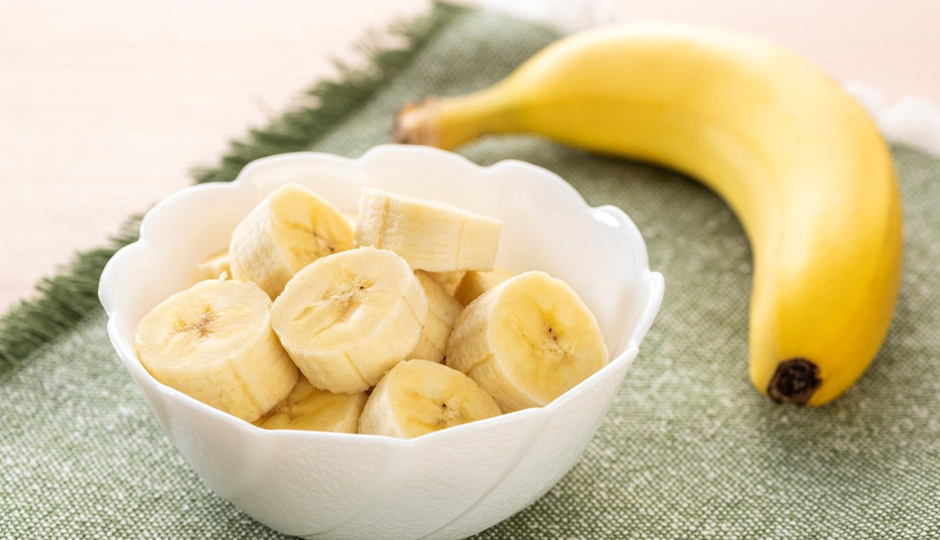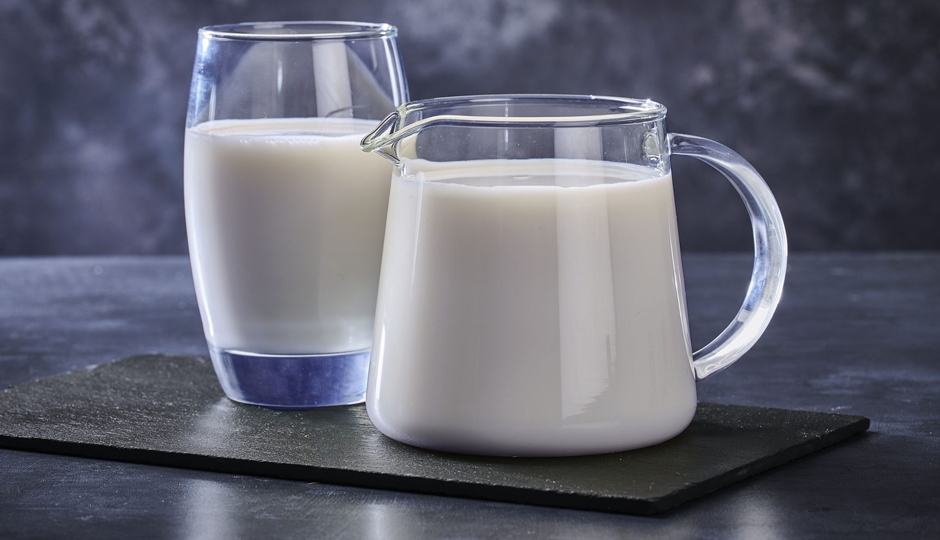- Home›
- Healthy Living›
- 13 Foods That Boost The Immune System
13 Foods That Boost The Immune System
By: Priyanka Maheshwari Tue, 11 Apr 2023 08:43:48

The immune system is responsible for protecting the body against harmful pathogens, viruses, and bacteria. While there are many factors that can impact the immune system's ability to function effectively, such as stress, lack of sleep, and poor diet, there are also many foods that can help to support and boost the immune system. These foods are rich in essential vitamins, minerals, and antioxidants that help to strengthen the body's defense mechanisms and promote overall health. Some of the best foods for boosting the immune system include citrus fruits, berries, leafy greens, garlic, ginger, turmeric, nuts, seeds, and fermented foods such as yogurt and kefir. By incorporating these immune-boosting foods into your daily diet, you can help to support a healthy immune system and reduce the risk of illness and disease.
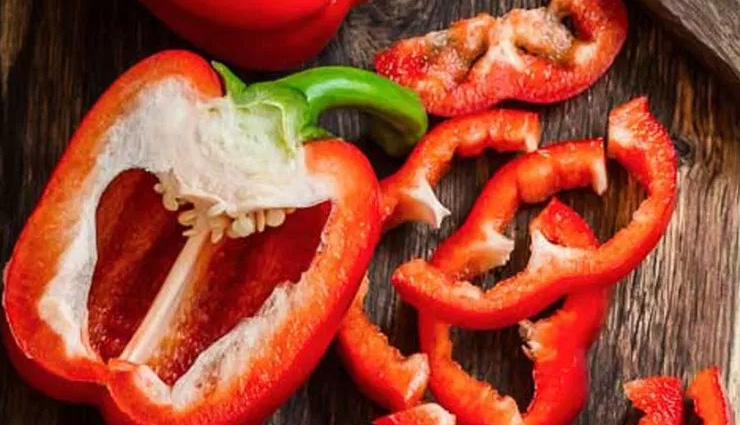
Red bell peppers
Red Bell peppers are 94% water, 5% carbohydrates, and negligible fat and protein They are rich sources of vitamin C, containing 97% of the Daily Value (DV) in a 100 gram reference amount (table). Their vitamin B6 content is moderate (17% DV), with no other micronutrients present in significant amounts (table). Red bell peppers have approximately twice the vitamin C and eight times the vitamin A content than green bell peppers. They’re also a rich source of beta carotene. Besides boosting your immune system, vitamin C may help maintain healthy skin. Beta carotene helps keep your eyes and skin healthy.
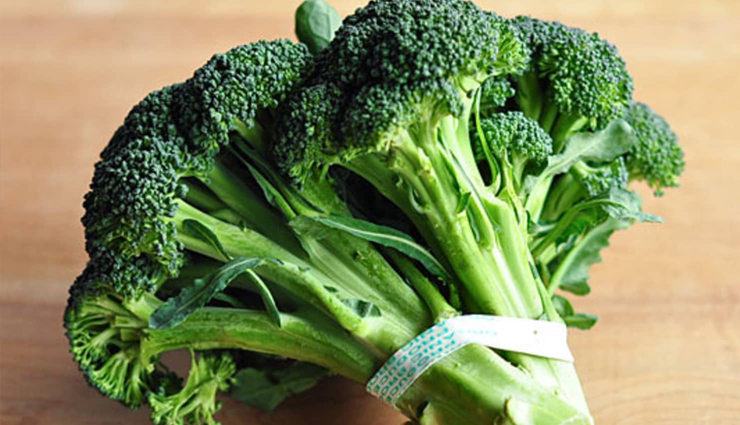
Broccoli
Broccoli is supercharged with vitamins and minerals. Packed with vitamins A, C, and E, as well as many other antioxidants and fiber, broccoli is one of the healthiest vegetables you can put on your table. The key to keeping its power intact is to cook it as little as possible — or better yet, not at all. A 100 gram reference serving of raw broccoli provides 34 calories and is a rich source (20% or higher of the Daily Value, DV) of vitamin C (107% DV) and vitamin K (97% DV) (table). Raw broccoli also contains moderate amounts (10–19% DV) of several B vitamins and the dietary mineral manganese, whereas other micronutrients are low in content (less than 10% DV). Raw broccoli is 89% water, 7% carbohydrates, 3% protein, and contains negligible fat (table). Along with this, broccoli is also great for weight loss because it is rich in fiber.
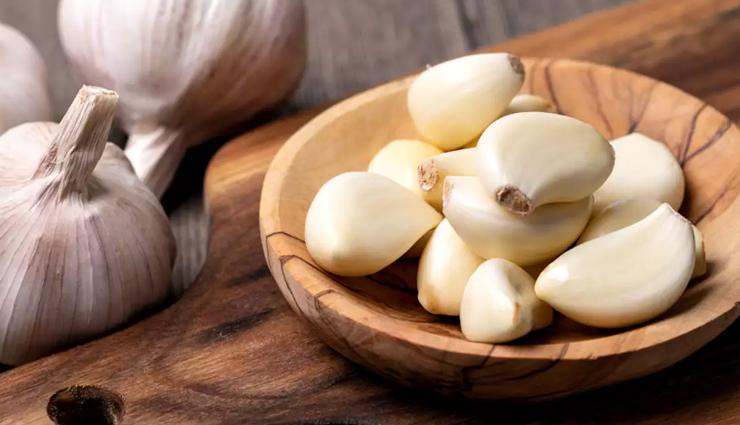
Garlic
Garlic is found in almost every cuisine in the world. It adds a little zing to food and it's a must-have for your health. Early civilizations recognized its value in fighting infections. In the typical serving size of 1–3 cloves (3–9 grams), garlic provides no significant nutritional value, with the content of all essential nutrients below 10% of the Daily Value (DV). When expressed per 100 grams, garlic contains several nutrients in rich amounts (20% or more of the DV), including vitamins B6 and C, and the dietary minerals manganese and phosphorus. Per 100 gram serving, garlic is also a moderate source (10–19% DV) of certain B vitamins, including thiamin and pantothenic acid, as well as the dietary minerals calcium, iron, and zinc. The composition of raw garlic is 59% water, 33% carbohydrates, 6% protein, 2% dietary fiber, and less than 1% fat.
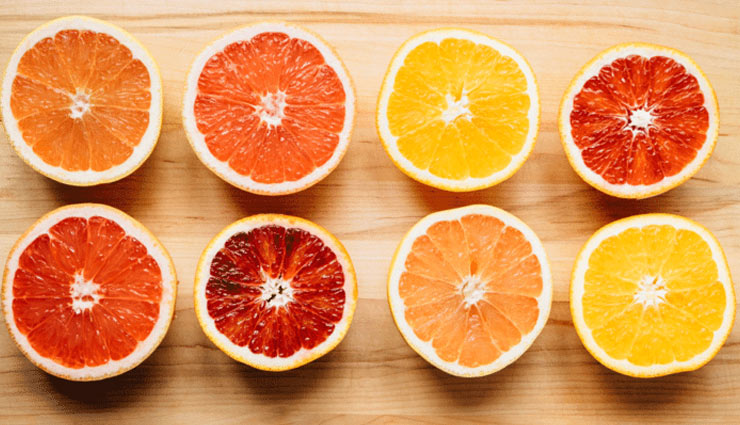
Citrus fruits
Citrus is a genus of flowering trees and shrubs in the rue family, Rutaceae. Plants in the genus produce citrus fruits, including important crops such as oranges, lemons, grapefruits, pomelos, and limes. Most people turn to vitamin C after they've caught a cold. That’s because it helps build up your immune system. Vitamin C is thought to increase the production of white blood cells.
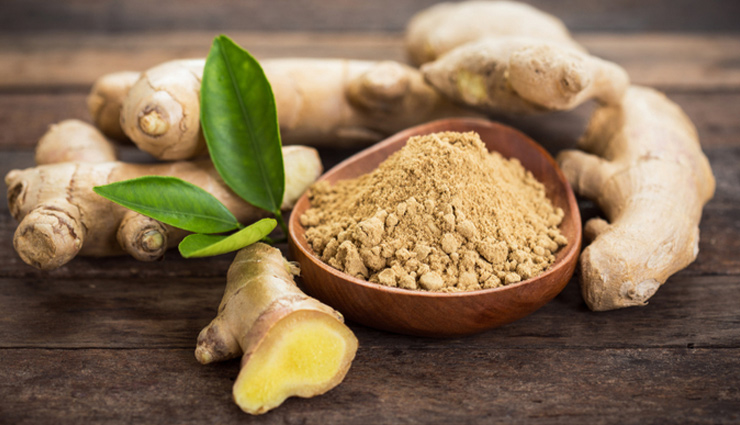
Ginger
Ginger is another ingredient many turn to after getting sick. Ginger may help decrease inflammation, which can help reduce a sore throat and other inflammatory illnesses. Ginger may also help decrease nausea. Raw ginger is composed of 79% water, 18% carbohydrates, 2% protein, and 1% fat. In 100 grams (a standard amount used to compare with other foods), raw ginger supplies 80 Calories and contains moderate amounts of vitamin B6 (12% of the Daily Value, DV) and the dietary minerals, magnesium (12% DV) and manganese (11% DV), but otherwise is low in nutrient content (table). When used as a spice powder in a common serving amount of one US tablespoon (5 grams), ground dried ginger (9% water) provides negligible content of essential nutrients, with the exception of manganese (70% DV).
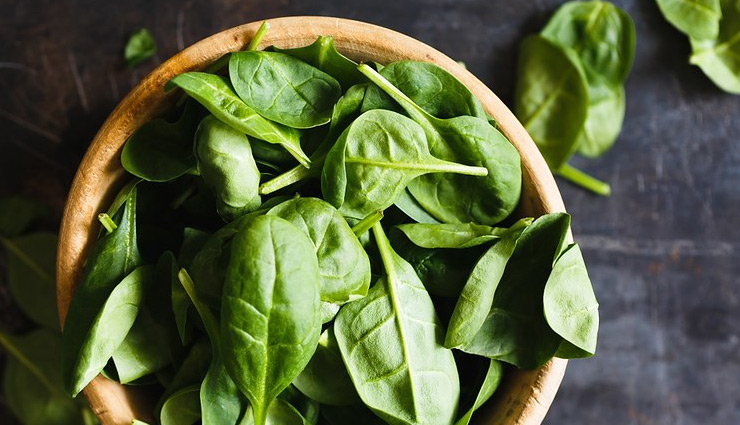
Spinach
Spinach made our list not just because it's rich in vitamin C. It's also packed with numerous antioxidants and beta carotene, which may increase the infection-fighting ability of our immune systems. Similar to broccoli, spinach is healthiest when it’s cooked as little as possible so that it retains its nutrients. Raw spinach is 91% water, 4% carbohydrates, 3% protein, and contains negligible fat. In a 100 g (3.5 oz) serving providing only 23 calories, spinach has a high nutritional value, especially when fresh, frozen, steamed, or quickly boiled. It is a rich source (20% or more of the Daily Value, DV) of vitamin A, vitamin C, vitamin K, magnesium, manganese, iron and folate. Spinach is a good source (10-19% of DV) of the B vitamins riboflavin and vitamin B6, vitamin E, calcium, potassium, and dietary fiber. Although spinach is touted as being high in iron and calcium content, and is often served and consumed in its raw form, raw spinach contains high levels of oxalates, which block absorption of calcium and iron in the stomach and small intestine.
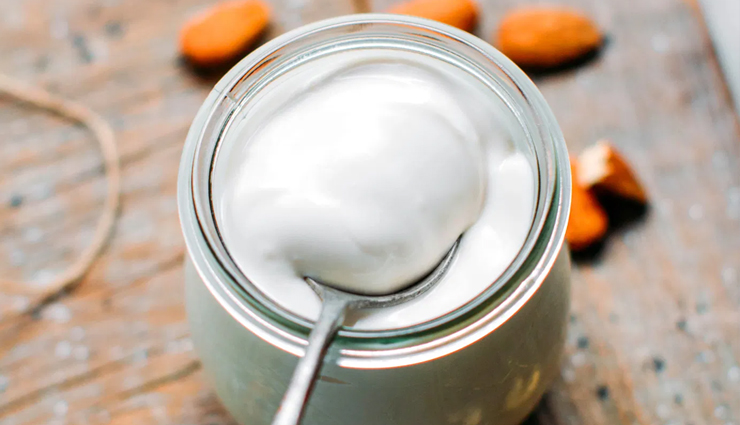
Yogurt
Look for yogurts that have "live and active cultures" printed on the label, like Greek yogurt. These cultures may stimulate your immune system to help fight diseases. Try to get plain yogurts rather than the kinds that are preflavored and loaded with sugar. Yogurt (plain yogurt from whole milk) is 81% water, 9% protein, 5% fat, and 4% carbohydrates, including 4% sugars (table). A 100-gram amount provides 406 kilojoules (97 kcal) of dietary energy. As a proportion of the Daily Value (DV), a serving of yogurt is a rich source of vitamin B12 (31% DV) and riboflavin (23% DV), with moderate content of protein, phosphorus, and selenium (14 to 19% DV).
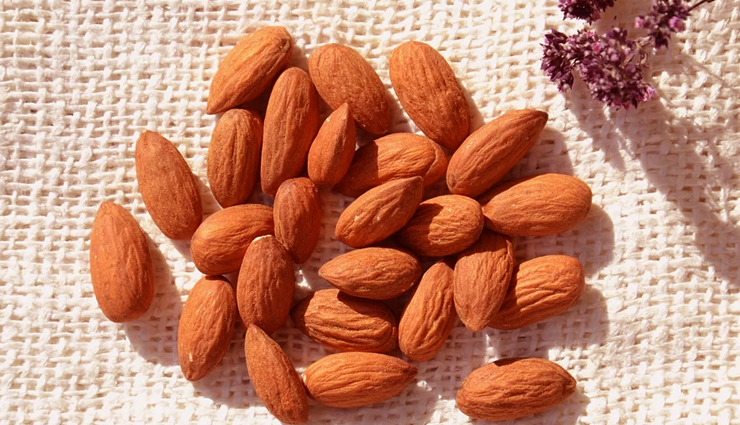
Almonds
When it comes to preventing and fighting off colds, vitamin E tends to take a backseat to vitamin C. However, vitamin E is key to a healthy immune system. It’s a fat-soluble vitamin, meaning it requires the presence of fat to be absorbed properly. Nuts, such as almonds, are packed with the vitamin and also have healthy fats. Almonds are a rich source of oil, with 50% of kernel dry mass as fat (whole almond nutrition table). In relation to total dry mass of the kernel, almond oil contains 32% monounsaturated oleic acid (an omega-9 fatty acid), 13% linoleic acid (a polyunsaturated omega-6 essential fatty acid), and 10% saturated fatty acid (mainly as palmitic acid, USDA link in table). Linolenic acid, a polyunsaturated omega-3 fat, is not present (table). Almond oil is a rich source of vitamin E, providing 261% of the Daily Value per 100 ml.

Green tea
Both green and black teas are packed with flavonoids, a type of antioxidant. Where green tea really excels is in its levels of epigallocatechin gallate, or EGCG, another powerful antioxidant. In 2018, a scientific panel for the European Food Safety Authority reviewed the safety of green tea consumption over a low-moderate range of daily EGCG intake from 90 to 300 mg per day, and with exposure from high green tea consumption estimated to supply up to 866 mg EGCG per day. Dietary supplements containing EGCG may supply up to 1000 mg EGCG and other catechins per day. The panel concluded that EGCG and other catechins from green tea in low-moderate daily amounts are generally regarded as safe, but in some cases of excessive consumption of green tea or use of high-EGCG supplements, liver toxicity may occur.
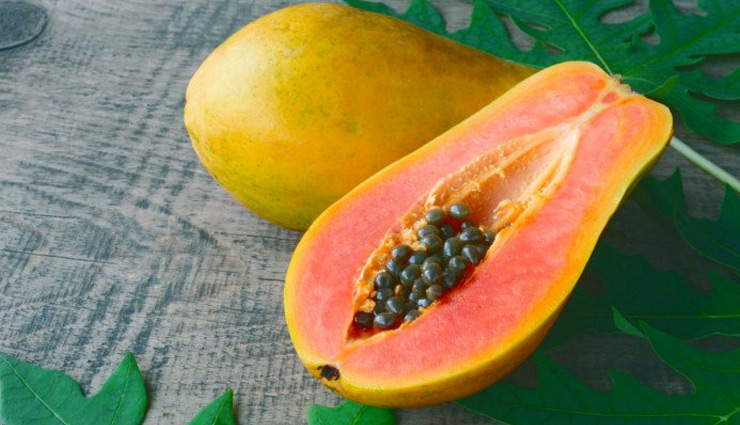
Papaya
Papaya is another fruit loaded with vitamin C. You can find 224 percent of the daily recommended amount of vitamin C in a single papaya. Papayas also have a digestive enzyme called papain that has anti-inflammatory effects. Raw papaya pulp contains 88% water, 11% carbohydrates, and negligible fat and protein (table). In a 100-g amount, papaya fruit provides 43 kilocalories and is a significant source of vitamin C (75% of the Daily Value, DV) and a moderate source of folate (10% DV), but otherwise has low content of nutrients.
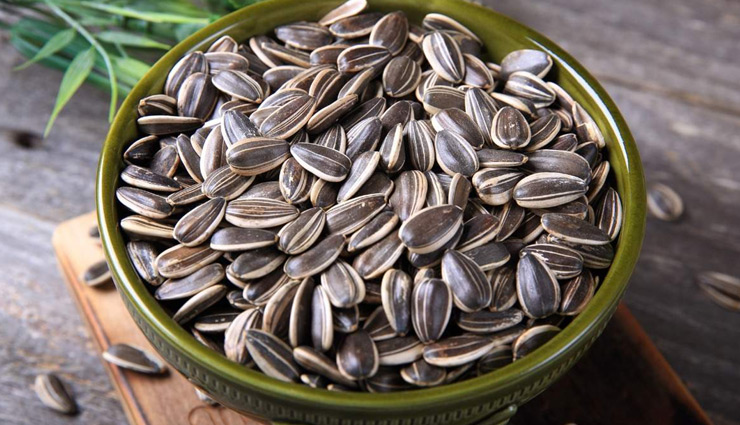
Sunflower seeds
Sunflower seeds are full of nutrients, including phosphorous, magnesium, and vitamin B-6. They’re also incredibly high in vitamin E, a powerful antioxidant. Vitamin E is important in regulating and maintaining immune system function. Other foods with high amounts of vitamin E include avocados and dark leafy greens.
The original sunflower oil (linoleic sunflower oil) is high in polyunsaturated fatty acids (about 68% linoleic acid) and low in saturated fats, such as palmitic acid and stearic acid.
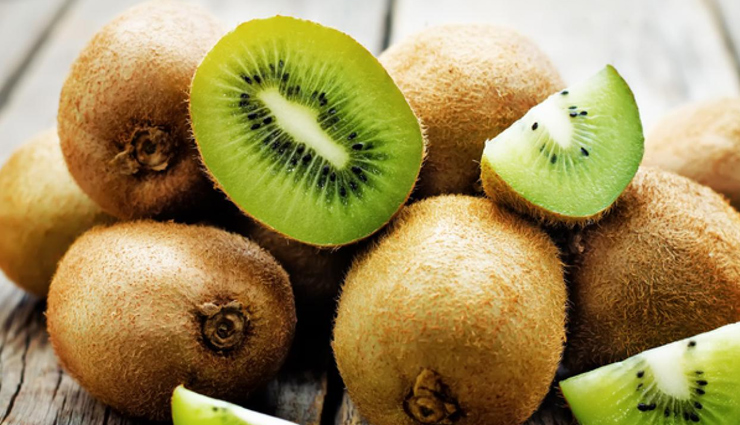
Kiwi
Like papayas, kiwis are naturally full of a ton of essential nutrients, including folate, potassium, vitamin K, and vitamin C. Vitamin C boosts the white blood cells to fight infection, while kiwi’s other nutrients keep the rest of your body functioning properly. In a 100-gram (3.5 oz) amount, green kiwifruit provides 61 calories, is 83% water and 15% carbohydrates, with negligible protein and fat (table). It is particularly rich in vitamin C (112% DV) and vitamin K (38% DV), has a moderate content of vitamin E (10% DV), with no other micronutrients in significant content. Gold kiwifruit has similar nutritional value, but higher vitamin C content, (194% DV).
Kiwifruit seed oil contains on average 62% alpha-linolenic acid, an omega-3 fatty acid.[39] Kiwifruit pulp contains carotenoids, such as provitamin A beta-carotene, lutein and zeaxanthin.
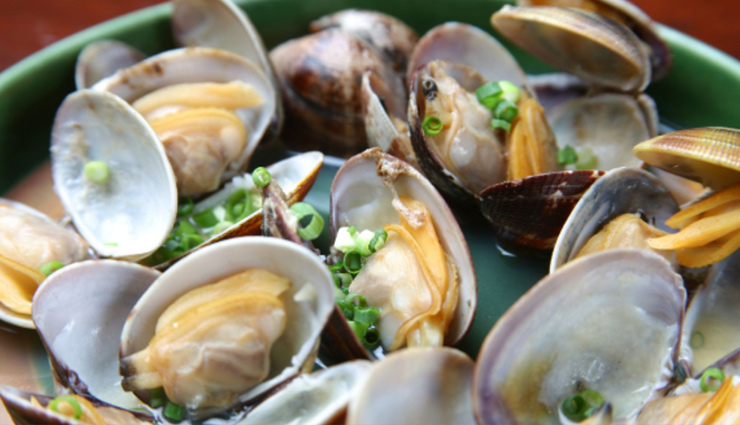
Shellfish
Shellfish is a colloquial and fisheries term for exoskeleton-bearing aquatic invertebrates used as food, including various species of molluscs, crustaceans, and echinoderms. Although most kinds of shellfish are harvested from saltwater environments, some are found in freshwater. In addition, a few species of land crabs are eaten, for example Cardisoma guanhumi in the Caribbean. Shellfish are among the most common food allergens. Some types of shellfish are packed with zinc. Zinc doesn’t get as much attention as many other vitamins and minerals, but our bodies need it so that our immune cells can function as intended. Varieties of shellfish that are high in zinc include oysters, crab, lobster and mussels.



